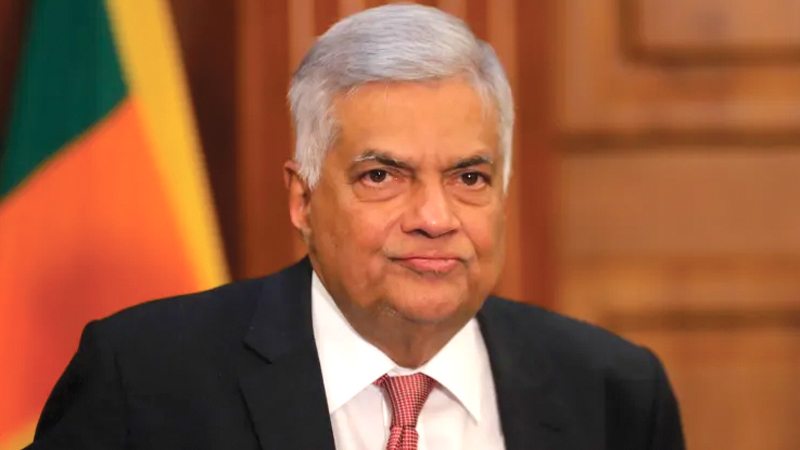President Ranil Wickremesinghe yesterday emphasised his commitment to building a robust economic framework that ensures long-term stability for future generations, steering away from short-term solutions that could risk economic collapse.
He was speaking after inaugurating the state-of-the-art swimming pool at Anuradhapura Central College. Reflecting on the past economic and political crises, President Wickremesinghe highlighted the necessity of a national-level political apparatus for strategic governance beyond the five-year electoral cycles.
He underscored the need for governance focused not merely on short-term power dynamics but also on sustainable national development.
The President said, “By averting bankruptcy, we have achieved our first milestone. However, continuing with the current economic trajectory risks accumulating unsustainable levels of debt, jeopardising the future these students aspire to. In the next 15 years, we could face a severe economic crisis unless we chart a sustainable course forward. “As a nation, we must decide whether to advance or risk economic collapse again. Considering that you will be here for at least another 50 years, our focus as a Government should extend beyond 2050 and aim towards securing prosperity by 2075.
“Therefore, we plan to transition our country’s economy from one reliant on imports to one driven by exports. This necessitates a fundamental overhaul of our economic structures, for which we have introduced the Economic Transformation Act. “Central to this transformation is the agricultural modernisation program, crucial for revitalising our economy. Thanks to the dedication of our farmers, who received essential fertiliser support, we achieved successful harvests in 2022, 2023, and 2024. In recognition of their contributions, we launched the inheritance tax exemption program, benefitting farmers across the North Central
Province. “Looking ahead, the global population is projected to increase by an additional two billion by 2050, necessitating a focus on using modern technology to maximise agricultural output and ensure food security worldwide. From these arid regions, we aim to achieve self-sufficiency in rice production, which will drive economic prosperity in Anuradhapura, Dambulla and Vavuniya. “These provinces have significant potential for solar energy projects and tourism development. Embracing innovation, we are embarking on ambitious initiatives such as the Trincomalee port development project in collaboration with India, which will also benefit Anuradhapura. “In line with our forward-thinking approach, plans are under way to set up three technological universities, supported by foreign institutions offering technical expertise. With advancements in Artificial Intelligence, we are poised to chart a new course towards a prosperous future. “Some politicians focus solely on gaining power for a five-year term or ousting their rivals from office. This narrow approach to politics has historically led to economic and political crises in our country. “Through collaboration across political divides, I successfully revitalised the national economy. This effort marked the setting up of a national-level thinking group for the first time in our history. Such a system is crucial for our future, transcending partisan interests to prioritise the nation’s well-being. “Regardless of political affiliation, it is important that every representative prioritises the nation’s interests. Our collective success as a nation hinges on the decisions we make in the coming year,” the President added.









